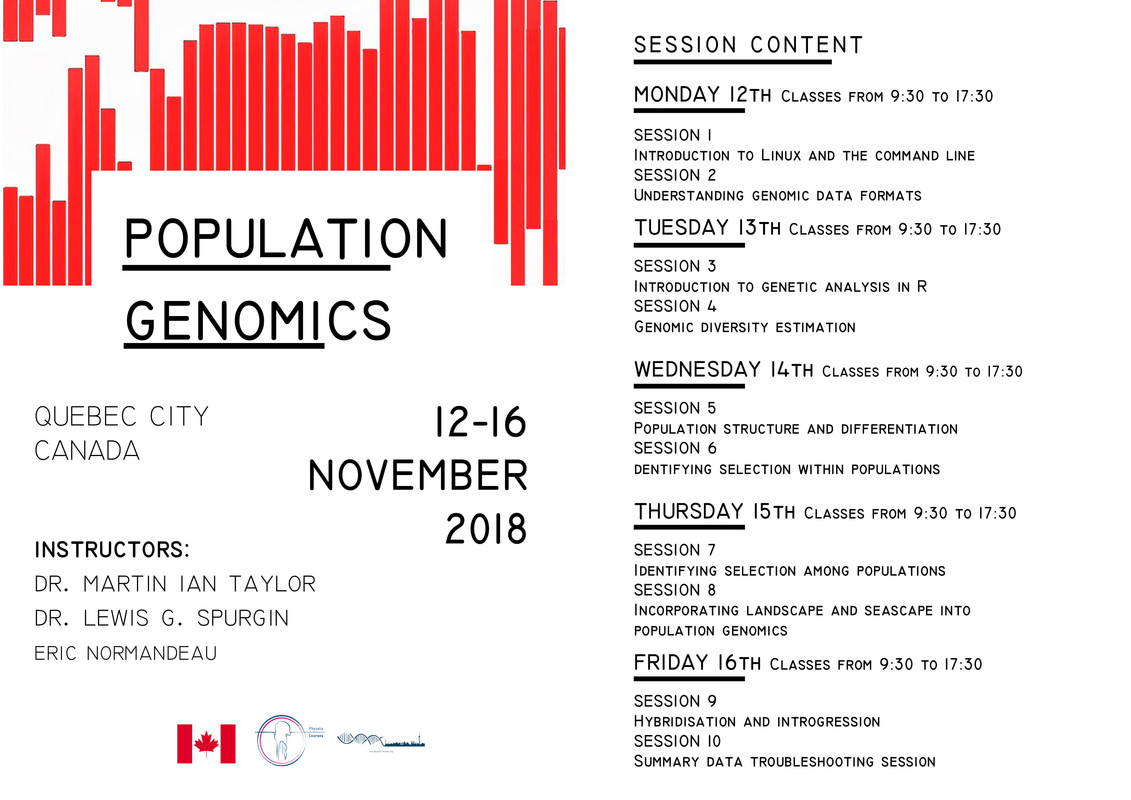
Course: **Population Genomics**
When: 12-16 November 2018
Where: Institut de Biologie Intégrative et des Systèmes (IBIS), Laval University, Québec City (Québec), Canada
Instructors:
Dr. Martin Taylor (University of East Anglia, UK)
Dr. Lewis Spurgin (University of East Anglia, UK)
Eric Normandeau (Laval University, Québec City (Québec), Canada)
Course Overview
Next generation sequencing has revolutionized evolutionary biology allowing unprecedented resolution and insight into evolutionary questions that appeared intractable only a few years ago. The course will cover the basics of population genomic analysis from SNP data onwards and will cover the key analyses that may be required to successfully analyze a population genetic data set. The course will NOT cover steps prior to generation of a .vcf file or SNP data set such as NGS data demultiplexing, clustering and SNP calling (This is covered in detail in the Introduction to RADseq course). This course will introduce Linux and the command line environment, basic perl and python usage, file conversions and manipulation, population structure and differentiation in R, outlier analysis, landscape / seascape genomics and introgression. Having completed the course, students should have a good understanding of the software and methods available for population genomic analysis and be competent in population genomic analysis.
Target audience & ASSUMED BACKGROUND
This workshop is aimed at postgraduate students and early career researchers who are interested in using population genomic tools in their research. No previous experience of bioinformatics is required, but an underpinning in evolutionary biology and basic population genetics concepts such as Hardy Weinberg Equilibrium and FST are desirable. The course will use a range of software including the Linux operating system and R.
TEACHING FORMAT
The workshop is delivered over ten half-day sessions (see the detailed curriculum below). Each session consists of a combination of lectures and practical exercises, with breaks at the organisers' discretion. There will also be time for students to discuss their own problems and data.
Please have a look at the course program
Here is the full list of our courses and Workshops

